Written by Diane Schuirman-Hagedorn
A few people around the conference room table looked teary-eyed. The person next to me touched my arm. I’d just announced at a staff meeting that I’d been diagnosed with young onset Parkinson’s disease (YOPD).
I was 42. My journey to a diagnosis took nearly six years and included lots of medical appointments and a medical leave. My office supported me the entire time.
More than two years later, my office is still great. Yet even with the best support, it’s challenging to work full-time with Parkinson’s.
Combatting Apathy
In hindsight, apathy was my first symptom. It’s harder to bring a sense of urgency to tasks, and it’s harder to prioritize them. Most of my work is deadline-driven, so that helps me stay on track. As I continue to work and manage Parkinson’s, I take extra time to prioritize things and I create visual reminders.
Accessing Resources
In my area there are lots of Parkinson’s resources, mostly designed for people who don’t work. I’m the youngest person in my local support group, and I struggle to leave the office in time to get there by 6:00 pm.
As a result of my full-time work schedule, I:
- Take time off if I really want to participate in a Parkinson’s activity.
- Am most likely to stream archives of Yoga for Parkinson’s and Dance for PD online.
- Pedal for Parkinson’s at home on a stationary bike my parents bought me.
I still get the resources and the physical benefits, but I miss out on the community aspect. That said, I do have a supportive community through my social relationships and the non-Parkinson’s groups I participate in.
Managing Energy
I feel best earlier in the day, and I have to recognize my energy is limited. I’m now less likely to bring work home, and I try to plan my tasks to match my energy. In addition:
- I find it helpful to plan downtime on the weekend, and before and after traveling.
- A good sleep routine, diet and staying hydrated are ongoing works in progress.
- Sometimes I feel I have to choose between work, health and family. My decision can vary on any given day.
Ongoing Conversations and Support
My co-workers see my tremor, prescription bottles, and mineral water happy hour drink (because I don’t mix alcohol with Selegilene). Some want to know if it’s ok to ask me about my health and some send me Parkinson’s-related information.
As before my diagnosis, I meet with my boss twice a month. We talk about my workload and how I’m feeling. She encourages me to take care of myself and asks for what I need.
One of my co-workers inquired about fundraising opportunities. Months later I sent her a link about a Parkinson’s walk. A week after that she said, “I hope you don’t mind. We have a team.” And so, on a rainy Saturday, my office walked for Parkinson’s. I wasn’t sure I could do the walk, but I did, slowly, and my boss walked beside me at my pace. Recently, as we completed our office planning calendar, I flippantly added that April was Parkinson’s Awareness Month. My office marked World Parkinson’s Day with blog and social media posts.
Parting Thoughts
I am fortunate and grateful to have the support that I have.
Since my diagnosis I have learned or been reminded that:
- How you spend your time, energy and money is about priorities.
- It’s ok to need help.
- It’s possible to take good care of yourself and to be a good employee.
Stay Informed On Your Parkinson’s Journey
Our Every Victory Counts® manual gives people living with Parkinson’s, their care partners and their family members the tools they need to take control of their own Parkinson’s treatment through a proactive approach to self-care.
This summer, we launched a powerful new print edition of this free beloved manual.
It’s jam-packed with up-to-date information about everything Parkinson’s, plus an expanded worksheets and resources section to help you put what you’ve learned into action. Color coding and engaging graphics help guide you through the written material and point you to complementary videos, podcasts and other materials on the Every Victory Counts companion website. And, it is still free of charge thanks to the generosity of our sponsors.
Request your copy of the new Every Victory Counts manual by clicking the button below.

Diane Schuirman-Hagedorn has young onset Parkinson’s disease and works as a strategic communications consultant. You can email her here.



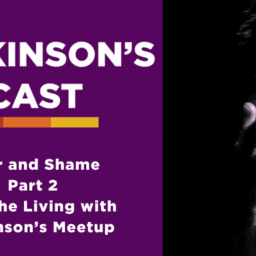

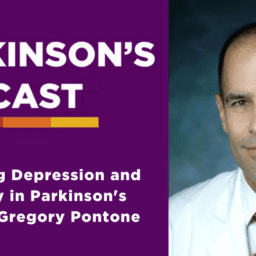

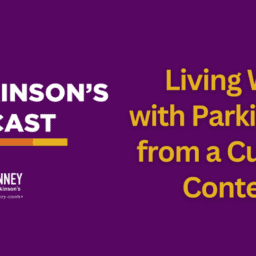

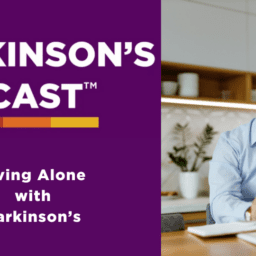

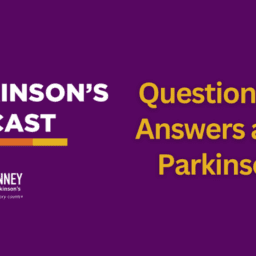
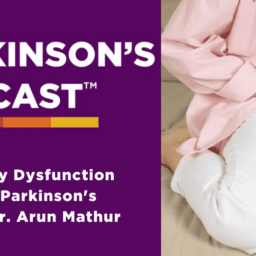

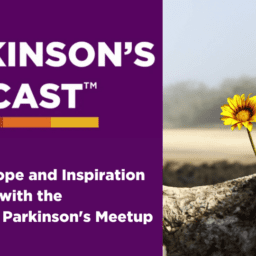
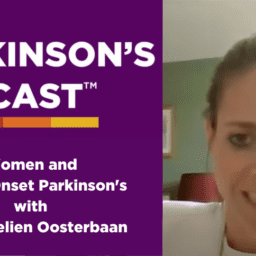

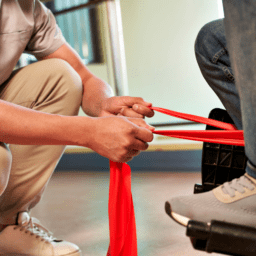
I am 46 and it sounds like I am exactly where you are. My company has been very supportive, but I am actually considering moving jobs to do something I enjoy more . I figure enjoying the job more may actually help the struggle. I commute every day too. 4 kids and a commute make for every day being a busy and priority juggling event. Thanks for sharing!
Thanks for your comment, Michael. We are glad to hear your company has been so supportive during this process. Factors like commute time, stress, and cognitive capability are all things to continually evaluate while working full-time.
What is the average length of time people with YOPD are able to work? My husband is in the process of being tested, he is 35
Thank you for your comment, Sara. It is difficult to give an exact length of time, since Parkinson’s is different for everyone and factors like type of work, workplace accommodations and stress vary from person to person. We do have a few other pieces about work and Parkinson’s: 4 Tips for Balancing Work and Parkinson’s, Expert Advice on Workplace Issues, How to Manage Workplace Stress.
If you would also like to speak to someone about their own experience with living with Parkinson’s and maintaining a career, I would be happy to connect you with one of our Ambassadors. Please feel welcome to send me an email at asable@dpf.org.
Hello everyone
I am 45 and patent of 3 kids 10, 5 and 3 years old my father was diagnosed with PD at 40 years old I. S
Tate’s to have rare symptoms as kicking while sleeping, insomnia, constipation and dizziness and went to all kind of studies such as MRI, crscans, blood test for all types of diseases and nothing found I recently starting to have spasm while sleeping also, I have a suspicious that this could be PD I am willing to keep my career as longest as possible would you connect me with information on how to accelerate diagnosis and how to extend my career, thank you so much
Hi Salomon, thank you for reaching out. In terms of accelerating diagnosis, you should speak with your doctor about getting a referral to a Movement Disorder Specialist (MDS), as they are experts in this area and may be able to provide you with a diagnosis that can give you some peace of mind. Our article “4 Tips for Balancing Work and Parkinson’s” (https://www.davisphinneyfoundation.org/blog/4-tips-for-balancing-work-and-parkinsons/) may be useful for you, as well as “Expert Advice on Workplace Issues” (https://www.davisphinneyfoundation.org/blog/expert-advice-on-workplace-issues/) and “How to Manage Workplace Stress” (https://www.davisphinneyfoundation.org/blog/how-to-manage-workplace-stress/). We wish you the best of luck.